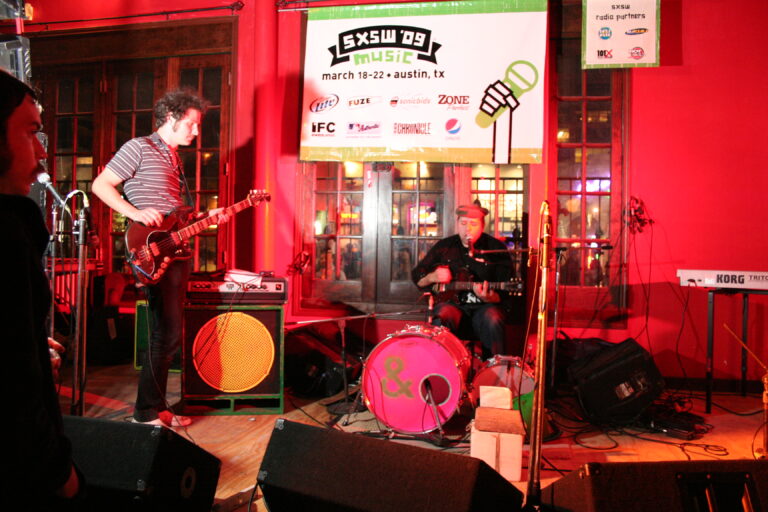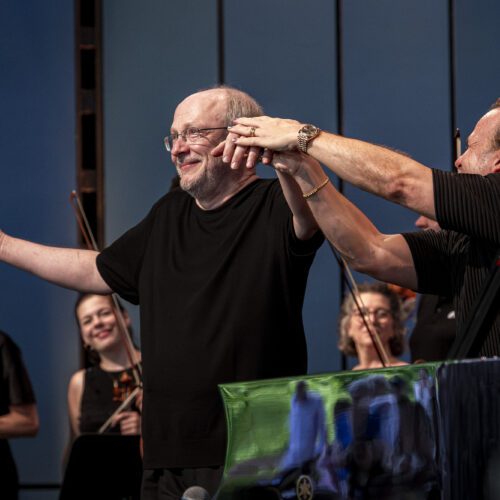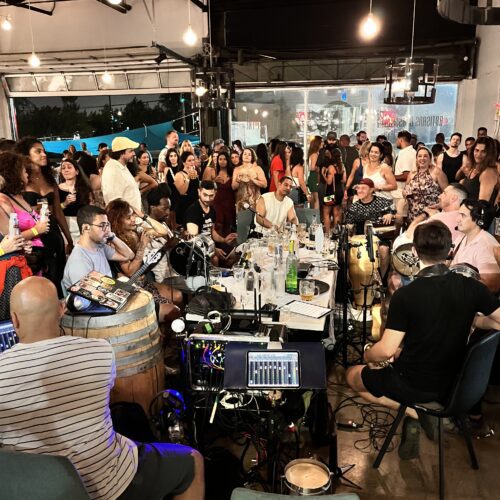We’re just a few weeks away from South by Southwest, the music, media, technology and film industry’s big event. Founded in 1987, the event has become a must for thousands of entrepreneurs, either to present their projects or to discover those of others. For the occasion, Austin, the capital of Texas, becomes the site of a carnival where locals flock to mingle with the mostly international guests and liven up 6th Street, the epicenter of the bacchanal, with a fauna that intermingles delegates with cockades, Jesus parades, twenty-somethings on the prowl, street vendors and artists, as well as the many musicians trying to unload their equipment through it all. At the same time, conferences, fairs, showcases and networking keep the delegates busy, most of whom are there to develop their businesses. The artistic side of the festival alone is worth the price of the roundel ($895 usd), but the raison d’être of this event is the business development side. That’s where its success lies, and many have been inspired by it ever since: M pour Montréal and Pop Montreal are just two examples.
I’ve had the good fortune and privilege of taking part in it for ten years or so, and it remains one of my finest experiences as a music lover and cultural worker. Thousands of musical groups together for a week, performing day and night, it was a dream. It nearly killed me too. Eventually, you have to get used to the fact that you can’t see everything you’d like to, and that it’s often better to let yourself be surprised by chance than to run to the four corners of the site, through the aforementioned fauna, to catch 10 minutes of the performance and have to make the same trip again for the next one on the list. I made some great discoveries, and I still miss that kind of crazy Friday night when you crawl back into bed, exhausted from so much stimulation, your ears ringing from all that’s gone on, and a smile on your face knowing it’s all happening again tomorrow.
It’s an experience I wish for all musicians and cultural workers. And if it develops into something interesting for them, it will have been worth the effort and the cost. Because it’s expensive, and the festival only provides a bare minimum for those who perform there, cheap accommodation is virtually impossible unless you spend the equivalent on transport, and that’s without dwelling on the difficulties of performing on American soil for foreign musicians with prohibitive visa costs. For Canadian musicians, there are a few funding programs for this sort of thing, but it’s all grants, paperwork and the like. You have to want it.
For a number of years, Pop Montreal, M pour Montreal and the Canadian Independent Music Association have been presenting showcases, BBQs and cocktails featuring Canadian artists in market development, with great success. The support of these organizations helps artists and the companies representing them find ways to make this investment a success, and ensures a certain professional presence at the events presented under these umbrellas. It’s a win-win situation for everyone involved, and it marks the presence of Montreal and Canada at a major event where a majority of industry players converge in an exceptional way. These initiatives are essential and should be supported as such.
The Canadian Independent Music Association recently announced that it was canceling its presence at the next edition, stating that the current political situation in the United States, prohibitive costs and the weak dollar had convinced them that the potential benefits were not worth the investment. Knowing that this is not the kind of thing that can be organized in 2 weeks, CIMA must have lost some money in the process, and will have to add this to the loss column. Is this an isolated incident or a trend?
For their part, M pour Montréal and Pop Montreal unveiled their official showcases a few days ago, featuring La Sécurité, Population II and Bon Enfant. Once again, it’s clear that this kind of thing doesn’t happen in 2 weeks, and that the wheels were in motion long before the U.S. elections and the revelation (ahem) that the new administration would make a 90-degree turn to the right once in power. And that Canada would be threatened with annexation and a trade war. In light of this new reality, we need to consider where we stand in terms of doing business.
We’re already in a bit of a bind with the models that have been imposed (Apple, Spotify and others), which channel part of the sums invested in creating Canadian content, fattening up a system that nonetheless disadvantages it, with a few exceptions, so we have to ask ourselves whether adding more makes sense. And begging for attention at a time when our very essence is being called into question may not be the right message to send to the world.
As we all know, boycotts have mostly a symbolic impact, and almost never touch the source of the discontent. But we’re in the symbolic business at the moment, and what happens next depends on where our representatives stand on the situation. If we want our defense of Canadian and Quebec identity to bear fruit, we have to set an example. Reconsider investments. Find other markets to develop. Change tools.
And abandon, perhaps temporarily, profitable habits like the Canadian presence at South by Southwest, because there are limits to playing the game with sore losers who change the rules along the way. And don’t let the Canadian citizen who takes twice as long to buy groceries because he doesn’t want to choose American products feel that there’s no point in worrying about it. Again, boycotts don’t affect the source, but they do affect others. We choose ourselves. It helps local producers, both manufacturing and cultural, and the money comes back here. Finally.
For decades, it’s been preferable for artists to be largely apolitical, and the polarization of recent years has reinforced this position. And unless you’re comfortable with incessant insults, or have an audience mostly aligned with these ideas, it’s understandable that many don’t want to be associated with things that might alienate some of their audiences. But it’s reached the point where identity itself is called into question, and ambivalence is no longer a position that can be explained. The reality is that living in Canada is now an important factor in our relationship with the world. To deny this is to deny ourselves. This doesn’t mean solidarity with our political representatives, but with our fellow citizens, who will all have to adapt to the new reality of a suddenly less friendly neighbor, no matter what political labels we’re saddled with. What counts today is that of Canada and Quebec.
The best way to make our voices heard is through those of our artists, who will at least have the benefit of uniting our voices and giving them volume, supporting our fellow citizens, and allowing them to choose for themselves. To support a culture that goes beyond poutine and field hockey, the only thing that has kept us from becoming the 51st state of the United States. It’s time for our political representatives to properly support these artists, because the future of Canada and Quebec depends on them. Let artists and cultural enterprises realize what’s at stake, and let citizens have the means to make a difference at a pivotal moment in our collective history. Our greatest adversary today is not only Trump and his minions, but ourselves.
























